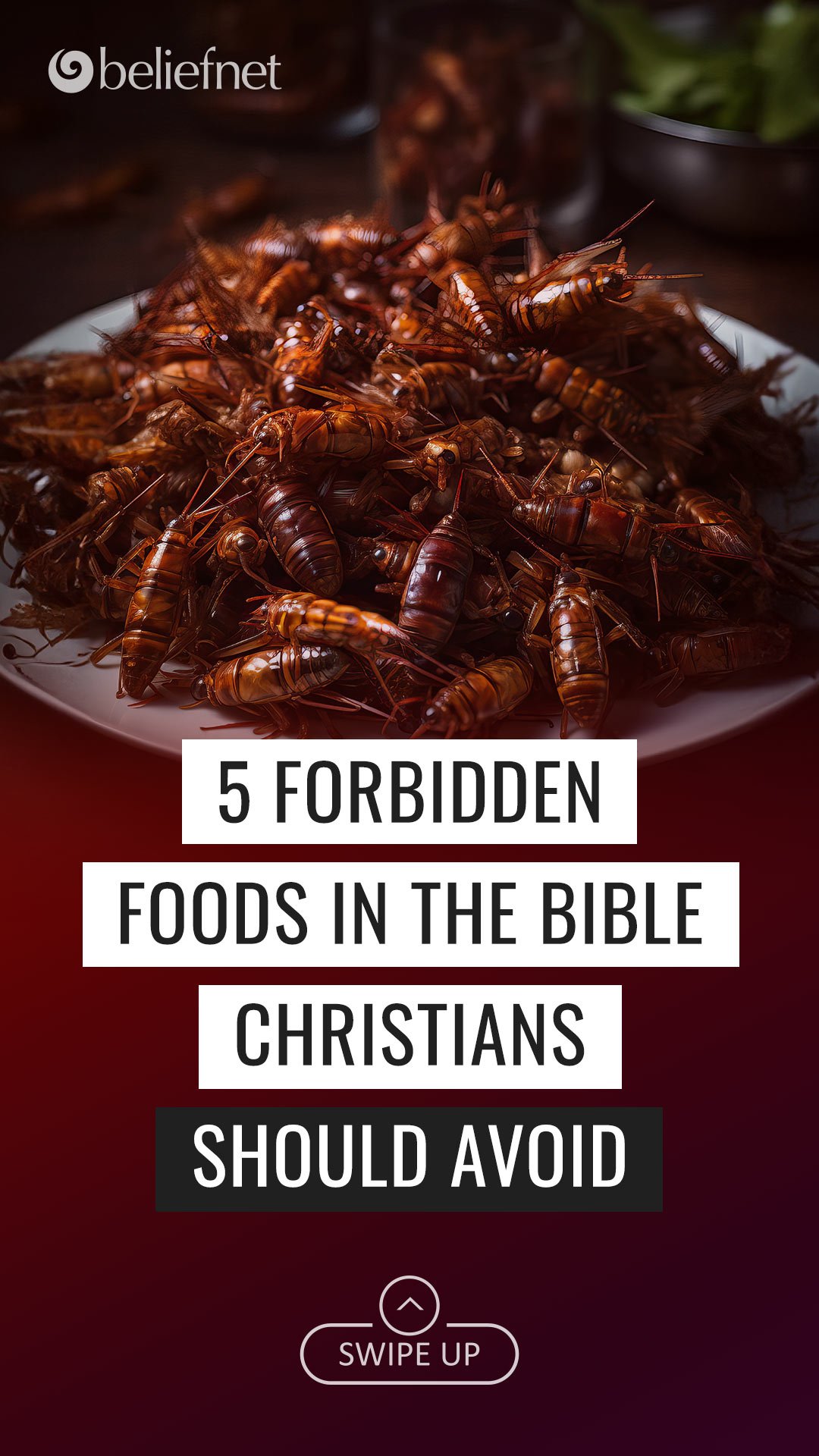
Health and tradition go hand in hand here.
Christianity is unusual among religions in that it does not have a closely defined purity code. There is not a laundry list of acceptable or forbidden foods. Most other major religions have some sort of purity code. Judaism is known for eating only kosher foods, which, for those who are extremely orthodox or overwhelmingly devout, can require two sets of kitchenware. Muslims avoid food that is not killed or cooked in a specific way to make it halal. Hindus do not eat beef, and many Buddhists are complete vegetarians. Christians, however, have no such restrictions. Some adhere to the purity code listed in the Old Testament, but most Christians do not think twice about eating whatever they want unless they give up a specific food for Lent. That does not mean that there is no wisdom in the purity code laid out in Leviticus, Numbers, and Deuteronomy. In fact, the Old Testament purity code has some advice that is good for anyone to follow for a variety of reasons. Here are five forbidden foods in the Bible Christians should avoid.
Animal Fat
Leviticus 7:23 states that it is forbidden to eat the fat of animals such as cattle and sheep. While this is part of the Old Testament purity code that is often ignored, it is a good idea to follow it. Animal fat is horrifically unhealthy. While it may taste delicious, fat from animals is high in saturated fats. Saturated fats, in turn, are associated with heart disease, obesity, and other unpleasant health issues. While it may be acceptable from a spiritual point of view for Christians to eat the grilled fat on the edge of their steak, it is a better idea to simply cut it off and throw it out. There are other things that taste just as good without being so harmful to a person’s health.
Bats
Leviticus 11 contains the longest-running list of what animals are considered clean and unclean. Certain sea creatures are said to be off-limits, such as crustaceans, as are certain land animals, like pigs. Leviticus 11 makes it a point to list which birds should not be eaten by the Israelites. At the end of that list are bats.
People today are aware that bats are not actually birds but flying mammals. They are also unlikely to wind up on a dinner table. While bats certainly seem like an odd food source to many Western Christians, there are plenty of places that see bats, especially large fruit bats like flying foxes, as a perfectly legitimate food source. Those who have no problem eating bats would do well to find an alternative food source. Bats are generally eaten in the Pacific Rim and Asia. While they may be harder to catch than the average bird, bat meat comes with a variety of risks. Bats are excellent vectors, animals that carry diseases, and those diseases can become lodged in bat flesh. People in Guam, for example, developed a neurological disease known as Lytico-Bodig disease or amyotrophic lateral sclerosis-parkinsonism-dementia (ALS-PDC). Contracted by eating fruit bats, ALS-PDC is a twisted mixture of ALS, Parkinson’s disease, and Alzheimer’s disease, and it was a leading cause of death among the Chamorro people in Guam for more than a decade.
Insects
It has become somewhat trendy nowadays for a person to claim that they ate bugs. Brownies with crickets in them are sometimes made by teens as a way of grossing out or scaring their friends, and social media has plenty of videos made for the shock value of watching friends eat fried tarantulas.
Insects and arachnids are a great source of protein and a common staple in many parts of the world. They are also a risky food source. Leviticus states that people can only eat various species of “locust, katydid, cricket, or grasshopper.” While those who enjoyed conquering their fear of spiders by biting into a tarantula would argue that there are plenty of other sorts of bugs that make acceptable food, the fact is that eating insects and arachnids is risky. Many insects and arachnids contain poisons that are toxic to humans. They are also excellent carriers of disease. While some may simply find eating creepy crawlies unpalatable, Leviticus may have been right to declare them off-limits. It is simply too easy to pick up the wrong sort of bug.
Vultures
Like bats, vultures are not something that most Western Christians would ever consider eating. Frankly, most Westerners, Christian or not, are perfectly happy to pretend that buzzards do not exist. They are large, associated with death, and often painfully ugly. They are also about the worst thing to eat in a survival situation.
In some ways, it makes sense to see the vulture as a potential food source. They are slow fliers, on the ground often, and very, very large. Logically, they would be easier to capture and eat than any other bird of similar size. Vultures, however, survive by eating rotting meat. This leaves them absolutely covered in bacteria. Vultures themselves are largely immune to the bacteria they consume, but this is not the case for whatever eats them. In fact, almost nothing will eat a dead vulture, including other vultures. That is about as flagrant a sign as nature can create that says, “do not eat.”
Blood
The purity code of the Old Testament is filled with injunctions against consuming blood. Beyond the various spiritual reasons that consumption of blood is forbidden, it may also be a food better avoided for health reasons. Blood is considered a “meat byproduct” by the USDA Food Safety and Inspection Service, and it has to pass inspections both before and after the animal is slaughtered to be considered safe to eat. Pig blood must be heat-treated, and all the stock must come from a country free of swine fever to avoid passing the disease on to humans. Similarly, there have been outbreaks of the H5N1 avian flu linked to consuming dishes made with poultry blood. While blood can be a safe source of iron, it can also be very risky to eat due to lingering diseases and the risk of iron poisoning or hemochromatosis.
Christians generally do not pay much attention to the list of forbidden foods in the Bible. That said, there is some legitimate health advice in the Old Testament. Many of the foods that are considered off-limits are things that Westerners were not planning to eat anyway, but some people still do consume them. Those that are thinking of trying out a new dish might want to think twice. If it contains something that Leviticus listed as a forbidden food, it might be in the best interest of your health to politely say, “no thanks.”



